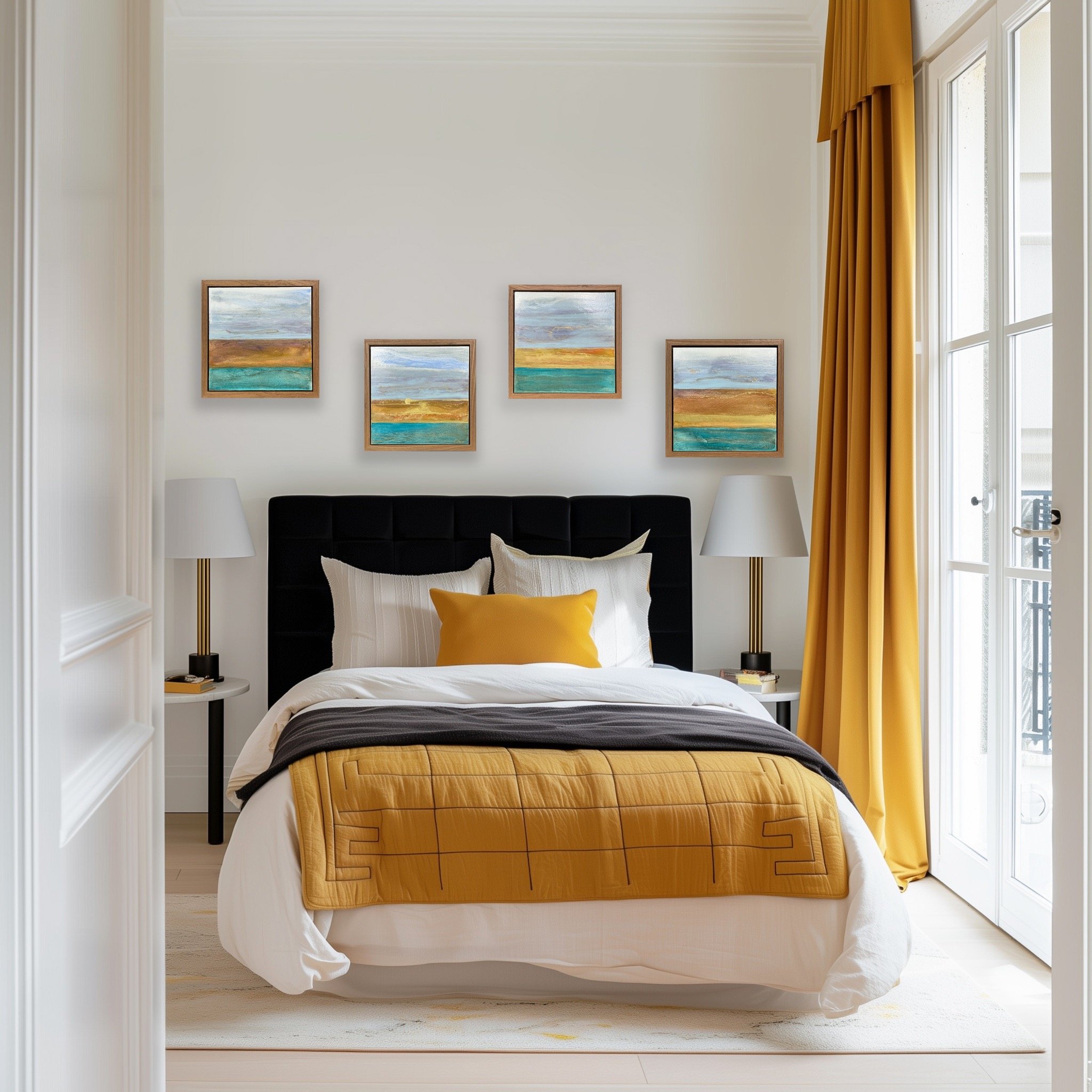What If Your Workspace Could Actually Heal You?
Here's something fascinating: The walls around you? The light above you? That view from your desk?
They're literally reshaping your brain every single day.
And if you're a healthcare professional, especially in hospice or palliative care, your environment isn't just affecting your mood. It's influencing whether you have the energy to keep showing up for the people who need you most.
The Research Reveals Something Important
Two major studies just confirmed what I've been exploring through my art for years: connection to nature isn't optional for our wellbeing. It's essential.
Here's what they found:
47% of workers don't have natural light in their workspace
58% have no greenery around them at all
Yet when asked what they want most? Natural light tops the list.
There's a gap here. And it's affecting us more than we realize.
What Happens When We Bring Nature Back Inside?
The numbers are stunning:
15% higher wellbeing
6% boost in productivity
15% increase in creativity
Just from adding natural elements to workspaces.
For hospice workers dealing with end-of-life care during a pandemic? These aren't just nice statistics. This is the difference between burnout and resilience.
Here's How It Works (The Brain Science Part)
When healthcare professionals work in spaces with biophilic design (that's fancy talk for "nature-inspired environments"), something beautiful happens:
Their attitude toward their workspace improves
Their emotional wellbeing increases
Their satisfaction grows
Their attachment to their workplace strengthens
It's a ripple effect. And it starts with something as simple as a window view or a living plant.
This is EXACTLY why I paint the way I do.
The Five Elements That Matter Most
Research in hospice centers identified what actually makes a difference:
Open spaces flooded with natural light
Nature-inspired decorative elements (tree shapes, organic forms, flowing lines)
Landscape views through windows
Wooden furniture and natural materials
Colors that create warmth (greens, blues, earth tones)
Sound familiar?
These are the exact principles I build into every landscape I create. Semi-abstract. Peaceful. Rooted in the colors and forms that help your brain find calm.
Why This Matters for YOUR Organization
If you're responsible for employee wellbeing, whether that's in healthcare, corporate offices, or anywhere humans spend their days, this is an exciting opportunity:
One in three workers say office design affects whether they'll even take a job.
In some countries? That number jumps to 67%.
Creating healing spaces isn't just kind,
it's strategic.
Real World Proof: The Genzyme Story
When biotech company Genzyme redesigned their headquarters with natural light, indoor gardens, water features, and abundant windows, they surveyed employees 18 months later.
The results?
88% said natural elements improved their wellbeing
75% felt more connected to their coworkers
Art heals. Design heals. Nature heals.
And we have the data to prove it.
But Here's the Thing About "Simulated" Nature
The research shows something fascinating:
Even IMAGES of nature, paintings, photographs, nature-inspired art. provide significant benefits. Not quite as powerful as a living tree outside your window. But close.
And sometimes? A painting is what's actually possible.
This is why my work exists.
When the building structure is set. When adding windows isn't feasible. When budget or space creates limitations.
You can still support the BRAIN of every person who walks into that space.
A landscape painting with the right colors, the right composition, the right energy? It activates the same calming response. It offers the same visual rest. It provides that crucial connection to something larger than the sterile walls around you.
What Healthcare Spaces Can Offer RIGHT NOW
For hospice professionals especially, people holding space for others in their most vulnerable moments, imagine a workspace that supports them.
One that:
Reduces their stress
Restores their emotional reserves
Reminds them they're connected to something living and growing
Because healing isn't linear. Not for patients. Not for caregivers either. You can shape your brain, and the environment influences it powerfully.
Simple Steps (That Make a Massive Difference)
Start here:
Maximize natural light however you can
Add living plants to common areas and individual desks
Bring in nature-inspired art (ahem, I know someone who creates exactly this)
Use natural materials like wood or stone where possible
Choose colors intentionally (blues calm, greens restore, earth tones ground)
Even ONE of these changes transforms the space.
Conclusion
If you're an HR executive, interior designer, facility manager, or anyone responsible for the humans in your building:
Your environment can actively support healing.
The research is clear. The solutions are accessible. And the impact is measurable. Healthcare workers, especially those in hospice and palliative care, deserve spaces that honor the emotional labor they perform. They deserve walls that calm them. Light that lifts them. Views that restore them.
And when you can't change the architecture?
You can absolutely change the art.
Because healing IS possible when experiencing art. The neuroscience backs it. The psychology supports it. And thousands of years of human experience confirm it. Your brain is neuroplastic. It changes based on what it experiences.
What do you want your workspace to teach it?
Want to see how biophilic design principles translate into actual paintings that support wellbeing? Check out my portfolio here. I create custom pieces for healthcare facilities, corporate spaces, and anywhere humans need to heal.
Sunset Minis by Claudia Vergara

